Prepared by Flora Partenio
The School of Feminist Economics is a training space to socialise analysis and tools for the construction of critical perspectives on the interrelationships between economic dynamics, gender, class, race and ethnic relations, and the mechanisms of inequality reproduction.
During the last 3 years, DAWN has worked towards a process of collective statements together with political and social organizations, feminist networks, unions and educational organizations based on feminist pedagogies. These spaces have been organized mainly around exchanges in Spanish and Portuguese, such as the production of collective documents, statements, audiovisual productions, publications, training materials and so on. For this reason, most of the materials presented during the first stage of the School are in Spanish.
From the feminist economy perspective, the School of Feminist Economics (SFE) intends to be a space for reflection. Its main themes are primarily focused on the conditions of global financial capitalism, corporate capture, the digital economy, the financing of public policies, the future of work and feminist experiences of resistance. At the same time, it aspires to multiply feminist pedagogies’ training spaces for activists. In the current context of resistance in a fierce world, this will help to strengthen dialogue and the connection between analysis and social mobilization.
The School is coordinated by Corina Rodríguez Enríquez and Flora Partenio, both members of DAWN’s Executive Committee. The first edition of the School of Feminist Economics—”Narratives and resistance to financial capitalism and the power of corporations”—was held within the framework of the “G20/IMF Out! Global Action Week” in November 2018. This experience was building on previous work and collective articulation, including The Peoples’ Summit “WTO Out! Building Sovereignty” and The Feminist Forum Against G20. This initiative was promoted by DAWN and co-organized by a series of feminist organizations from Latin America and the Global South. Subsequently, and within the framework of the World Social Forum of Transformative Economies, DAWN launched the website of the School of Feminist Economics.
The virtual site of the School is a pedagogical space that opens access to training resources and feminist self-training, to share, download audio visuals and disseminate readings that allow for further reflection. The launch of the website retraces the path travelled up to this point with ally organizations and feminist activists from different countries. It is the start of a new cycle of collective work in the face of the challenges of the current scenario marked by the impacts of the pandemic.
In this training and self-learning space, one will find a series of thematic modules focused on analysis from a feminist economy perspective:
- The conditions of development and reproduction of global financial capitalism.
- The modalities acquired by the new international social-sexual-racial division of labour and its effects on working conditions.
- The gender marks of corporate crimes committed by trans-nationalized capital.
- The discussion of illicit financial flows (IFF) and its impacts on gender justice and social justice.
- Critical analysis around the narratives on financial inclusion and labour inclusion of women through the paradigm of “entrepreneurship”.
- The conditions of the global expansion of data extractivist capitalism, digital commerce and platform work.
- Access to and investment in public services, and the financing of public policies in countries of the North and South.
- The articulation of public debt with domestic debt.
- Feminist experiences of resistance against the advance of fascism and racism; feminist practices of autonomy and self-management; the union and feminist organization in the face of the advance of labour reforms.
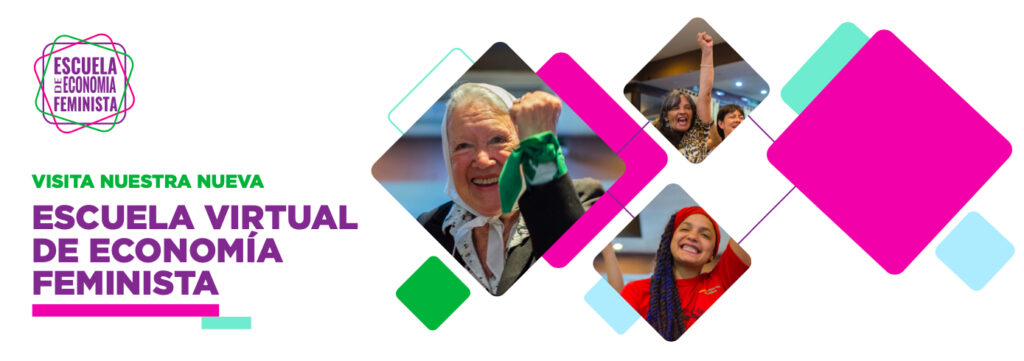
For content about the school in Spanish see:
La Escuela de Economía Feminista se propone abrir un espacio de formación para socializar análisis y herramientas para la construcción de perspectivas críticas sobre la interrelación entre la dinámica económica, las relaciones de género/clase/raza/etnia y los mecanismos de reproducción de la desigualdad.
The New Normal in Dispute: Transformative Proposals from the Solidarity & Feminist Economy
The School of Feminist Economicsrelated items
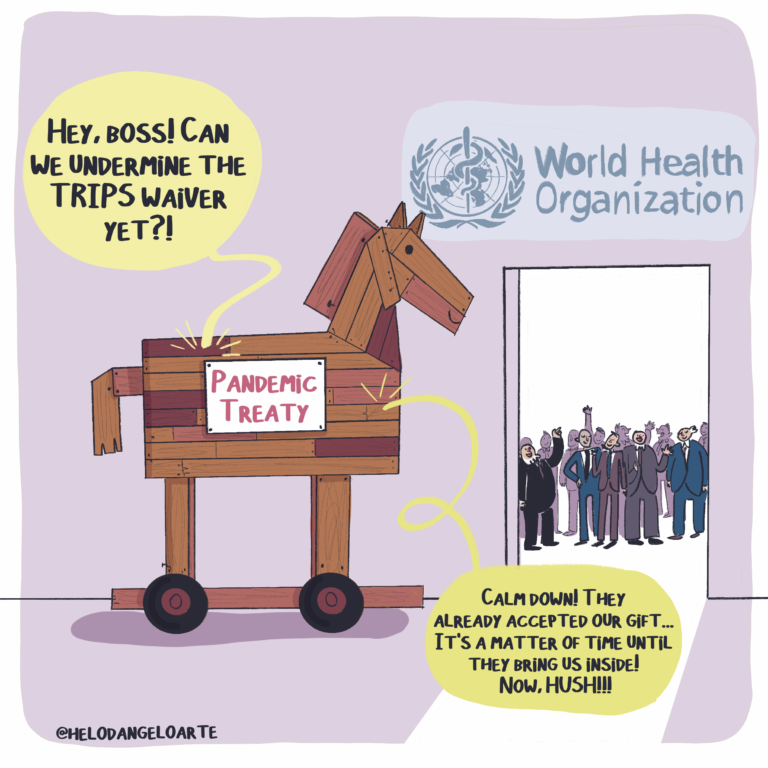
Pandemic Treaty as diversionary tactics from tech transfer

The role of neoconservative religious leaders in vaccine hesitancy and gender-based violence

Increase of LMICs debt contributes to gender-based violence

The ways vaccine equity contributes to gender-based violence in its different manifestations

The ways vaccine equity contributes to gender-based violence in its different manifestations

Pfizer’s and Merck’s anounce agreement of voluntary licensing with the Medicines Patent Pool
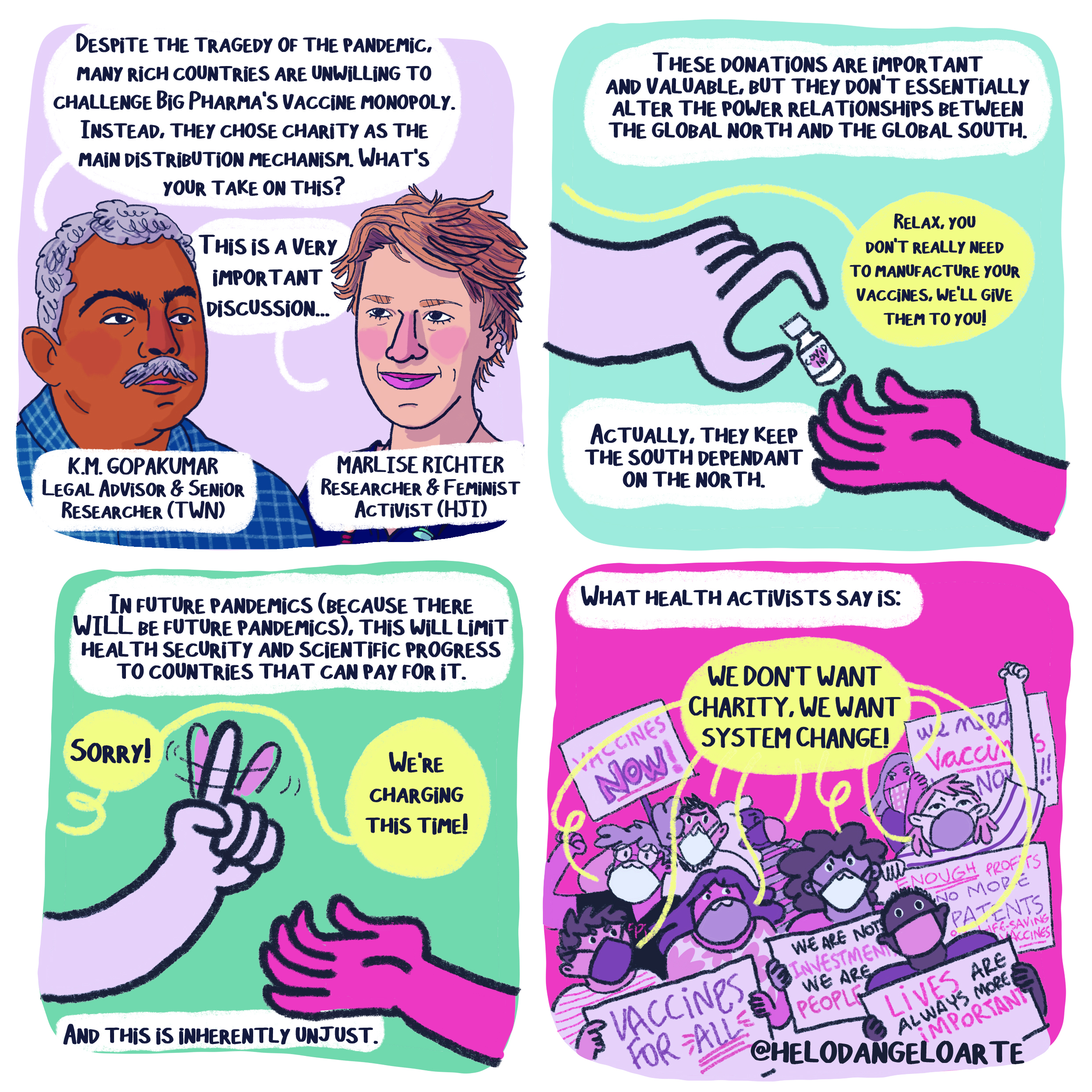
To vaccinate the world we need tech transfer, not charity

To Vaccinate the World We Need Tech Transfer, Not Charity
G20 Meeting failes to deliver compromise on vaccine equity and climate action
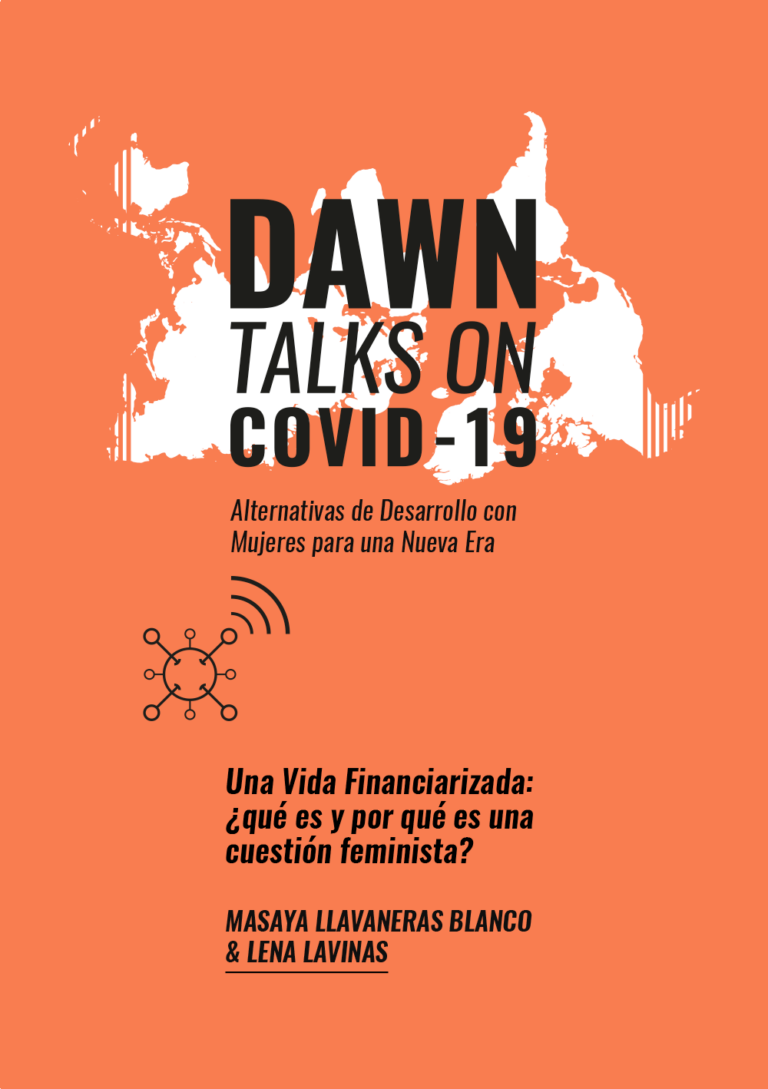
A Financialised Life: what is it, and why it’s a feminist issue?

The EU’s role in vaccine inequity – Sweden’s State Review at the 80th Session of the Committee on the Elimination of All Forms of Discrimination Against Women (CEDAW)
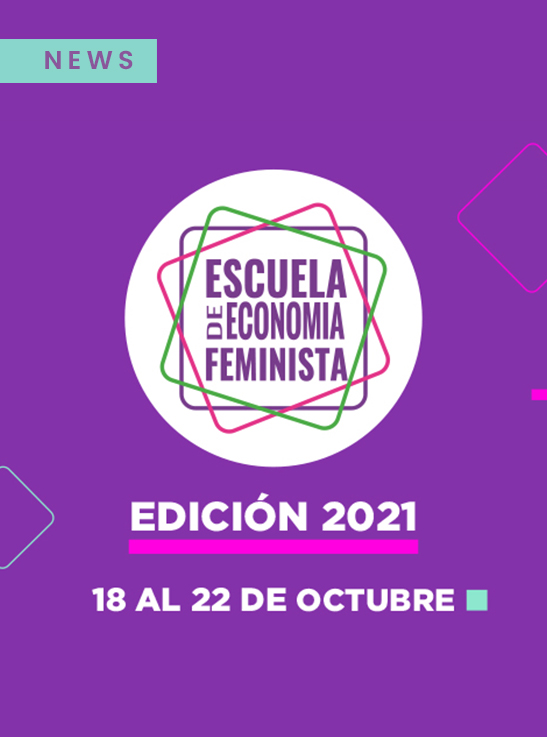
Lanzamiento edición 2021 de la Escuela de Economía Feminista
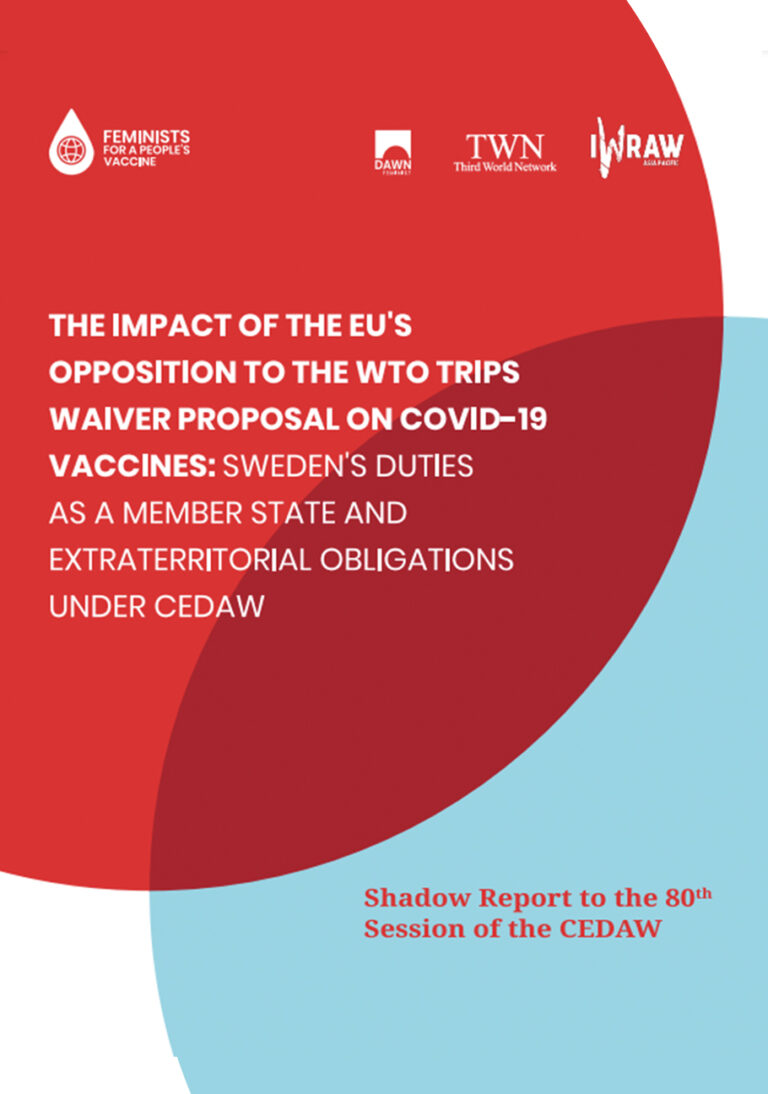
The Impact of the EU’s Opposition to the WTO TRIPS Waiver Proposal on COVID-19 Vaccines
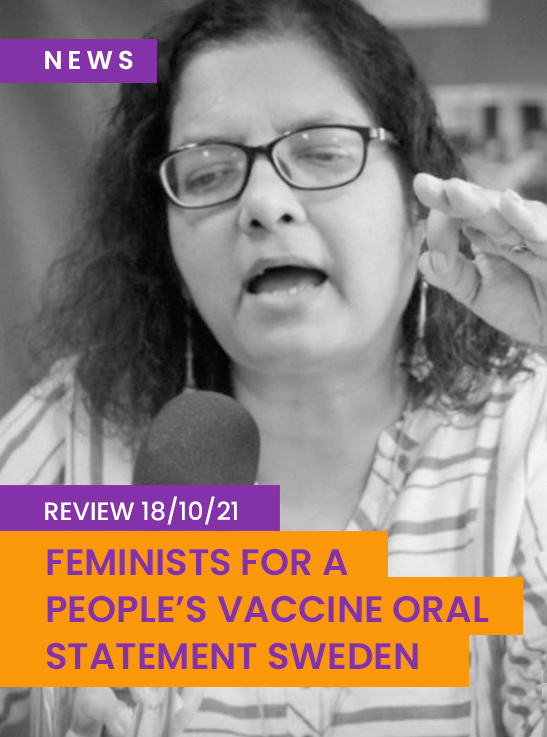
Feminists for a People’s Vaccine Oral Statement Sweden Review 181021

Investors take flight from The Metals Company

What do Angela Merkel and Jair Bolsonaro have in common?
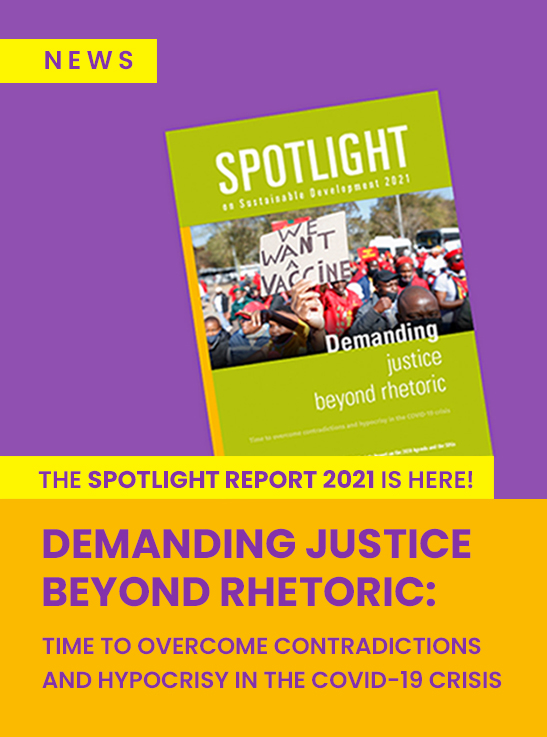
Launch of Spotlight on Sustainable Development 2021
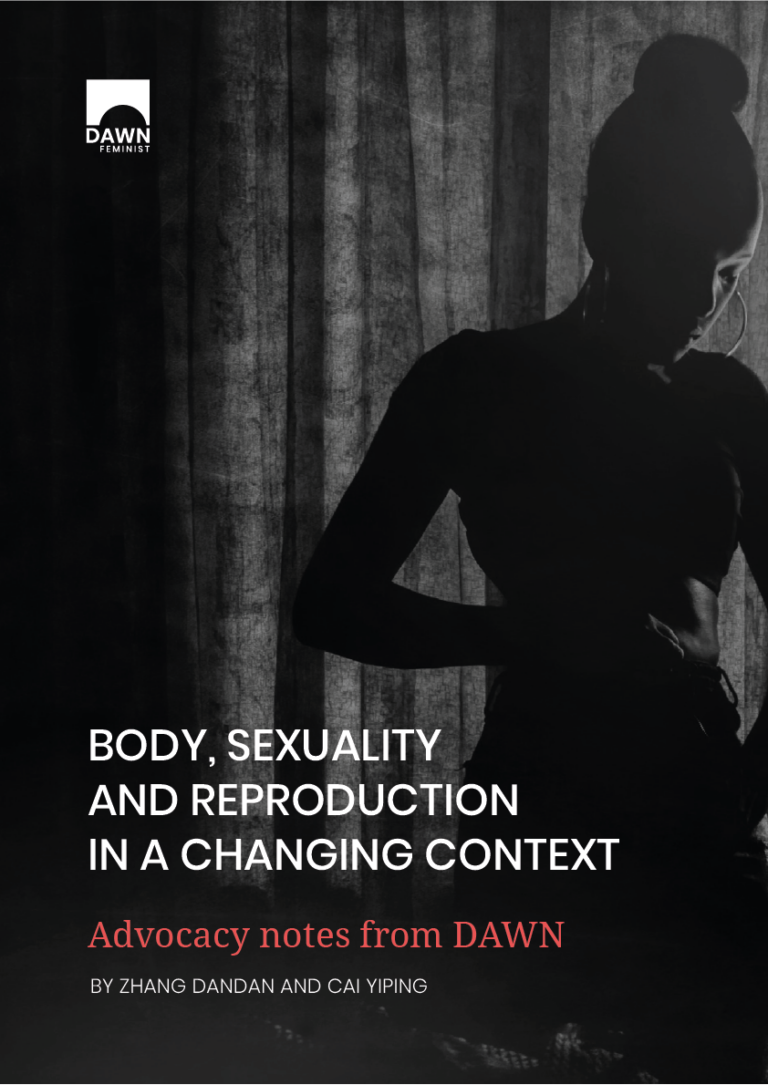
Body, sexuality and reproduction in a changing context
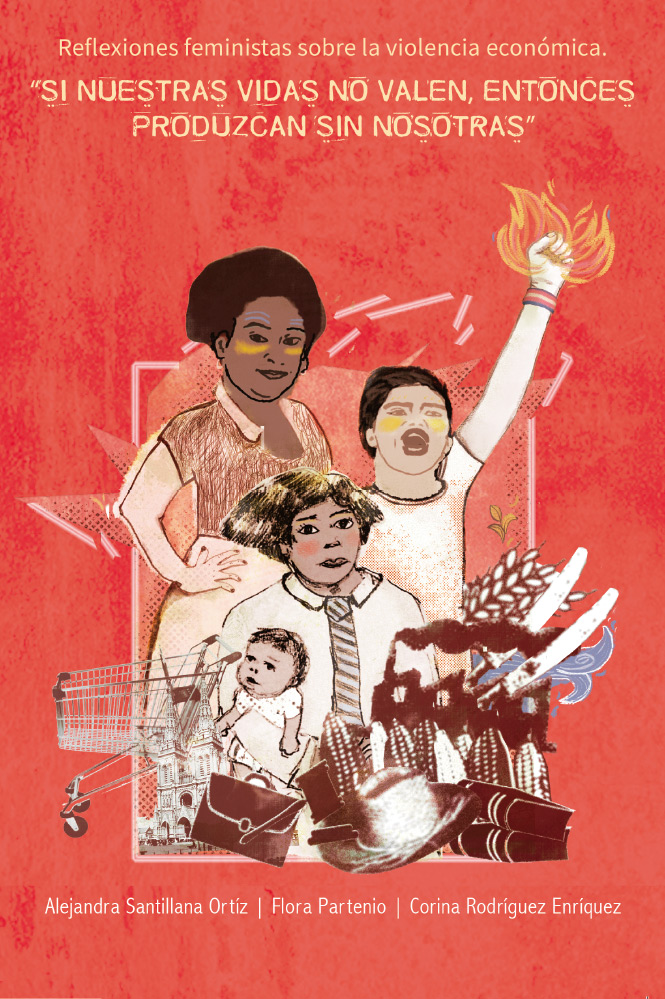
“Si nuestras vidas no valen, entonces produzcan sin nosotras ”

Documento Temático # 5 La OMS y la COVID-19: Iniciativas multilaterales

Documento Temático # 4 Propuesta de exención de los ADPIC: Un debate en curso

Documento Temático # 3 Una evaluación de las flexibilidades de los ADPIC

Documento Temático # 2 Normas internacionales de comercio e inversión, derechos de propiedad intelectual y Covid-19: Una perspectiva desde el Sur

